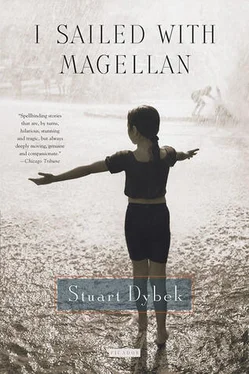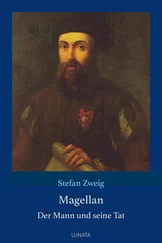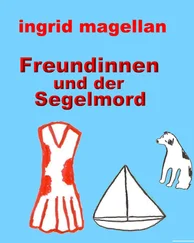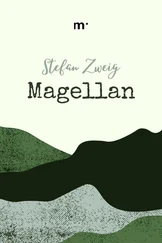It was months before he saw her again, this time at a rodeo in Amarillo — a long way from El Paso — where he stood in the outdoor ring waiting for his bout with the Snake. The loose white shirt she wore didn’t conceal her pregnancy, and for a moment he wondered if the child could be his, then realized she’d already been with child when she’d knocked on his trailer door. La Culebra, in his plumed sombrero, rainbow-sequined cape, and feathered boa, was the star of the Lucha Libre circuit, and it had been agreed that the Hummingbird was to go down to his first defeat in a close match that would leave his honor intact so that a rivalry could be built. But when Teo saw Alaina there at ringside, he couldn’t accept defeat. He and the Snake slammed each other about the ring, grappling for the better part of an hour under a scorching sun with Teo refusing to be pinned, and finally in a clinch the Snake told him, “It’s time, pendejo, stop fucking around,” and locked him in his signature move, the boa constrictor. But the Hummingbird slipped it, and when the Snake slingshotted at him off the ropes, the Hummingbird spun up into a helicopter kick. The collision dropped them both on their backs in the center of the ring. “Cocksucker, this isn’t El Flatoso you’re fucking with,” the Snake told him as he rose spitting blood. The legend surrounding La Culebra was that he’d once been a heavyweight boxer. He’d become a luchador only after he’d killed another boxer in the ring, and now, when he realized they weren’t following the script, he began using his fists. The first punch broke Teo’s nose, and blood discolored his white and blue mask, swelling like a blood blister beneath the fabric. The usual theatrics disappeared, and the match became a street fight that had the fans on their feet cheering, a battle that ended with the Snake flinging the Hummingbird out of the ring. The fall fractured Teo’s kneecap, his head bounced off the pavement, and as he lay stunned, unable to move for dizziness and pain, the Snake leaped down onto his chest from the height of the ring, stomping the breath from his body, and tore off the bloodied mask of the Hummingbird as if skinning him, then spit in his flattened face. Teo, his face a mask of blood, looked up into the jeering crowd, but he never saw Alaina again.
In Teo’s nightmare, the Snake humiliated him not only by tearing off his Hummingbird mask and exposing his identity to the crowd but by derisively shouting “ Las tetas! ” and tearing off Teo’s tank top, exposing a woman’s breasts weeping milky tears. At dawn, when Teo groaned out of his dream, with his stomped, body-slammed chest aching and his heart a throbbing bruise, there was no envelope of winnings waiting. That morning Teo knocked repeatedly on Lefty Antic’s door without an answer. The thought occurred to him that the saxophone player had taken off with their money, not out of crookedness but on a drunken binge. It was only in the afternoon, when Teo bought a newspaper and checked the racing scores at Arlington, that he learned Bright Venus had finished dead last. He checked the harness results at Sportsman’s, and there was a story about a buggy overturning in the third race and its driver, Toby North, being critically injured when a trotting horse crushed his chest.
It seemed as if a vicious practical joke had been played on them all, but when the next message came, Teo knocked again on Lefty Antic’s door. He hadn’t seen the saxophone player since Lefty had staggered out to place their bets on Bright Venus. There still was no answer, and Teo, filled with a terrible sense of abandonment and foreboding, sure that Lefty Antic was dead inside, got the landlord to open the door, only to find the room empty and orderly. Alone, feeling too apprehensive simply to ignore the message, Teo studied the racing pages looking for clues as he’d seen Lefty Antic do. It seemed to him that the new rain-smudged message, “delay plaza,” referred to the mayor, Richard Daley, and when he could find no connection whatsoever at any of the race tracks, he took the El train downtown. There wasn’t a Daley Plaza in Chicago, but there was an open square near City Hall, and Teo walked there, not sure what he was looking for, yet hoping to recognize it when he saw it. But no sign presented itself, nothing was going on in the square but a rally for a young senator from Massachusetts, an Irish Catholic like the mayor, who was running for president in a country that Teo figured would never elect a Catholic.
The messages have continued to arrive, and Teo continues to save them, and the cigar box fills with scraps of paper his pigeons have brought home from God knows where. Teo can’t shake the foreboding or the loneliness. His sleep is haunted by the recurrent dream of a funeral that extends the length of a country of ruined castles and burning ghettos. He’s part of the procession following the casket, ascending a pyramid, its steps dark and slippery with the blood of what’s gone before. He doesn’t want to see what’s at the summit. Unable to return to sleep, sometimes he spreads the messages on the table and tries to piece them together, to see if the torn edges fit like the pieces of a jigsaw puzzle or if the words can be arranged into a coherent sentence. He senses some story, some meaning, connecting them, but the words themselves baffle him: knoll, motorcade, six seconds, bloodstone …
And it’s not dreams alone that disrupt his sleep. There’s an increasing tenderness in his chest that waking doesn’t dispel. In the darkness, his nipples ache as if they’ve been pinched with tongs; the palpitations of his heart resonate like spasms through soft tissue. His flesh feels foreign to his breastbone. He can feel his inflamed mounds of chest swelling beneath his undershirt, and he brushes his fingertips across his chest, afraid of what he’ll find. He’s put on weight, and his once sculpted chest has grown flabby, his weight lifter’s pectorals drooping to fat. Come morning, he reassures himself that’s all it is — fat, he’s simply getting fat, and this strange pain will also pass. Better to ignore it. He avoids studying the bathroom mirror when he shaves.
Sometimes, after midnight, he thinks he hears Lefty Antic playing his saxophone softly on the roof, but it’s only wind vibrating the rusted chimney hood, streaming clouds rasping against a rusty moon, the hoot of pigeons. He hasn’t seen the sax player since they lost their stake on “Lone Star.”
Teo has written his own notes—“Who are you? What do you wants?”—and attached them to those pigeons of his who have brought the strange messages. Noah-like, he’s sent them flying out over the wet rooftops to deliver his questions, but those pigeons haven’t returned home, and it takes a lot to lose a homing pigeon. They fly in a dimension perilous with hawks and the ackack fire of boys armed with rocks, slingshots, and pellet guns. Fog and blizzards disorient them, storms blow them down, and yet instinct brings them home on a single wing, with flight feathers broken, missing a leg or the jewel of an eye.
Teo has decided that since his communiques go unanswered and his birds don’t return, he will refuse to accept further messages. All week he has kept his remaining pigeons cooped. And now this morning, attached to a strange pigeon, another message, the first in Spanish: asesino. “Murder” or “assassin,” Teo doesn’t know which.
He’d like to ease the loneliness, if not the foreboding, and tell Zip about the messages. But until this afternoon, when he found Zip drinking alone and obviously needing someone to talk to, Teo has been reluctant to talk about anything more personal than Zip’s favorite subject: fishing. True, Zip was obviously curious about Teo’s wrestling career, but it didn’t seem right to tell the insignificant story of the Hummingbird to a man who is so careful never to speak of war wounds.
Читать дальше












